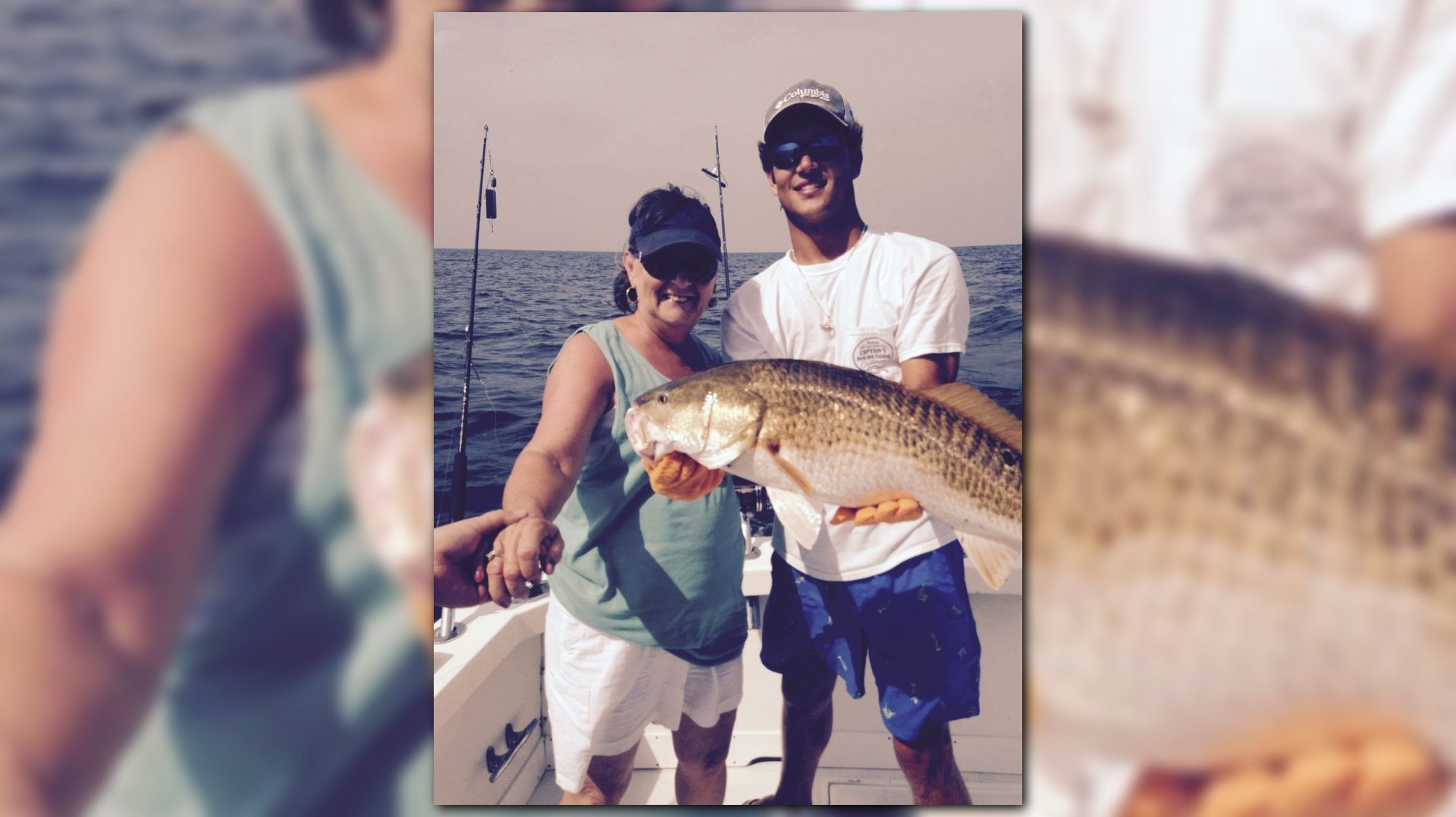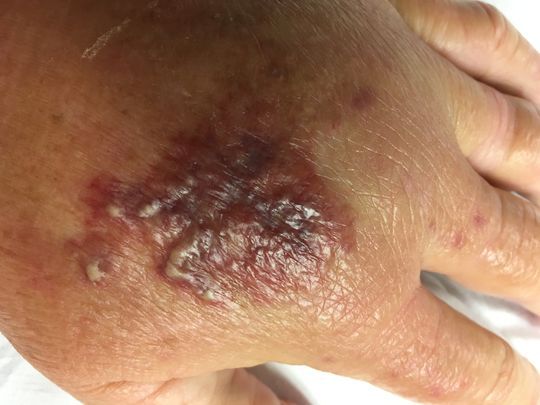Little did Glenda Sessions know that a much-anticipated fishing trip the day after Father's Day would end in the operating room of Forrest General Hospital.
The Petal resident was fishing off a private pier in Mobile Bay around 2:30 p.m. June 19 when she stuck her hand in a bait bucket full of live shrimp and felt a prick.
"My hand started itching severely and there was a bruise, but I thought the bruise was because of my scratching," Glenda said.
Glenda continued fishing and then went out to dinner later that night, but by bedtime at 11, she wasn't feeling well. She woke up at 2:30 a.m. with headache, nausea and chills.
"I had this huge black spot on my hand it and it was swollen really big," Sessions remembered. "I was cold — very, very cold. Nothing would help."

Sessions asked her husband, Rodney, to take her on the more than two-hour trip from Fairhope, Alabama, to Forrest General Hospital in Hattiesburg.
"I was extremely nervous about it not being a good situation," said Rodney, a longtime Hattiesburg American columnist.
During the ride to Hattiesburg, Glenda lost consciousness and Rodney contemplated calling an ambulance from the road. When they arrived at Forrest General's emergency room, they were told Glenda had contracted an extremely aggressive bacteria.
"About four hours after we got to the hospital, the doctor said, 'Don't put in her in a room. Take her to the operating room,'" Rodney said. "It had progressed to swelling and blisters. By the time she got to the operating room, it was at her wrist."
Glenda underwent her first surgery that morning. She's since had a second surgery to clean her wound and a reconstructive surgery on her hand. The couple found out from doctors that Glenda had been infected with Vibrio vulnificus — a necrotizing fasciitis, known in the vernacular as flesh-eating bacteria.
Rodney reported Glenda's infection to the Alabama Department of Public Health, which has since put out a warning about Vibrio bacteria. During the past 12 months, 30 cases of vibriosis have been confirmed in Alabama.
Alabama health officials said many harmful organisms lurk in lakes, rivers and in other bodies of water. Some bacteria may lead to destructive soft-tissue infections.
"Sometimes otherwise healthy people can develop a skin infection after skin injury and being exposed to natural bodies of water," said Karen Landers, Alabama's assistant state health officer, in a news release. "Some bacteria can cause more severe infections than others."
Vibrio symptoms include vomiting, abdominal pain, chills, fever, shock, skin lesions and wound infections. In someone with a compromised immune system the bacteria can infect the bloodstream and may result in death. For all cases of Vibrio, it's important to begin treatment immediately because early medical care and antibiotics improve survival.
"Vibrio is a naturally occurring bacteria in the salty waters off the Gulf Coast," said Paul Byers, Mississippi Department of Health epidemiologist. "In the summer months, those bacteria increase.
"People who do have a risk should take precautions. If you're immune-compromised, don't get in the water and expose a wound."
Byers said Mississippi has had nine reports of Vibrio infections this year.
"It's a bad infection, and for those people who are at risk, it can progress rapidly and sometimes lead to death," he said.
Glenda was lucky. She recently got a positive report from her surgeon, and her hand and arm skin grafts look good. She may soon be able to back off the antibiotic infusions the home health aide gives her every day through a port in her arm and the oral antibiotics she takes twice a day.
Rodney hopes his wife's experience can be a lesson for others.
"I want an awareness of the existence of this rare flesh-eating bacteria and for the public to be informed of the increased risk factors," he said. "Take precautions if you have open sores or suppressed immune systems, and — most importantly — if you have symptoms, immediate medical attention is needed to save a limb or a life."
Glenda is anxious to get the bandages off her hand and arm and go fishing again.
"We'll have to wear gloves for sure," she said. "I'm going to be more cautious.
"I love it, and I'm not going to give it up."
At a glance
Vibrio vulnificus
Commonly known as: Flesh-eating bacteria
Contracted by: Exposure to bacteria-infected waters or through consumption of raw or undercooked shellfish, particularly oysters
Occurs naturally in: Brackish and warm salt water such as bays or gulfs
Symptoms: Vomiting, abdominal pain, chills, fever, shock, skin lesions, wound infections
Vulnerable people: Those with compromised immune systems
Treatment: Immediate medical attention required, antibiotics administered, surgery sometimes needed


